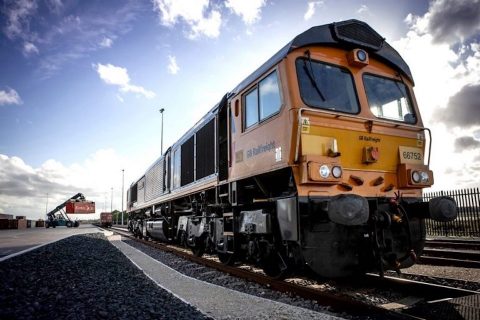Infrastructure managers and rail fees cause another headache to rail freight

Recently established railway infrastructure fees related to train cancellations, parking and service quality cause yet another headache to the rail freight industry. That is because they are not always proportionate, while they are not accompanied by compensations when delays or cancellations are the infrastructure manager’s fault. ERFA warns that instead of incentivising the industry, they could make it less flexible and predictable.
According to the European Rail Freight Association (ERFA), several European infrastructure managers have been introducing increased rail infrastructure fees as of late. Some examples include DB Netze increasing cancellation fees from 2024, ProRail in the Netherlands, which increased train parking fees in 2023 and RFI in Italy, imposing quality penalties at Italian border stations.
Buffer capacity
The buffer capacity booked by railway undertakings seems to be the primary issue in this case. In certain instances, railway undertakings are forced to cancel this capacity or delay their trains, thus exceeding the time and space reserved. Whether cancelled or delayed, trains must also be parked and wait for the next available timeslot to depart. These are cases when infrastructure fees apply.
However, it is not always in the hands of railway undertakings to comply. That is because such situations can occur due to broader supply chain disruptions that impact the timeliness of trains. Additionally, as Akos Ersek from UIRR has underlined, the system’s buffer capacity is also outgrown because of planned infrastructure works or impairments resulting in train delays or cancellations. Consequently, is it fair for railway undertakings to take all the burden?
Unfair approach
ERFA says that charging RUs for situations they do not directly influence is unfair. “During the current period, it has become nearly impossible to keep timetables due to global supply chain disruptions”, stresses the association.
It also seems unfair for RUs to be burdened with extra charges when there is no compensation for nuisance from the infrastructure managers’ side. “We fail to see how increasing cancellation fees under current conditions, without any reciprocity, will have a positive impact. A change of approach is needed”, commented Dirk Stahl, ERFA’s president.
Long-term impact
Extra infrastructure charges can have additional adverse outcomes. For instance, they can impact the planning of rail freight companies. This means that in view of increased costs and decreased flexibility, RUs could start planning their services only in the short term. Consequently, infrastructure managers will struggle even more to reroute services in the case of engineering works which “may make an already difficult situation worse”.
Finally, despite rail infrastructure fees applied by infrastructure managers on a theoretically national level, their impact exceeds national borders. “Over 50 per cent of European rail freight crosses at least one border. Any change to national fees and charges will have a direct effect beyond domestic traffic”, concluded Connor Feighan, ERFA’s secretary general.
Also read:




